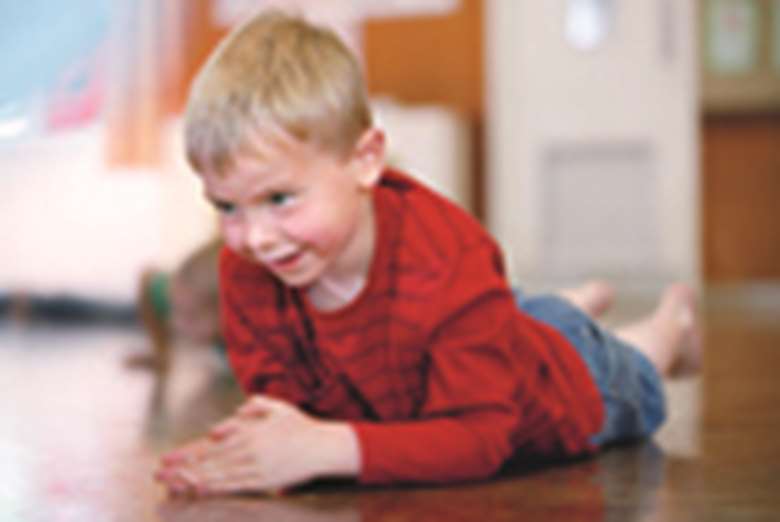Learning & Development Movement sessions Part 2 - A big adventure!
Helen Bilton
Wednesday, July 16, 2008
Use physical movement play to enhance children's vocabulary and language skills, says Helen Bilton.

Before getting started
Look again at the first article in the movement series (Nursery World, 26 June, p16) to remind yourself about all you need to consider before, during and after a session.
THE SESSION
Part 1. Warming up
In a circle, ask the children to thread one arm under the other, to look through their legs, to stretch their hands up high and then down low. Have them space themselves out and ask them to pretend to climb a rope, go under a bridge, squeeze through a tunnel. In this way they can begin to use the words in the main session.
Part 2. The main teaching session
- Ensure you know what you want to teach and how it links to the last lesson - for example, to help children understand specific words by using them in movement, or to enable children to move confidently and with vigour.
- So children can reconnect with the space, ask them to move about the room/space walking with arms swinging. Explain that you are going on a long journey; there will be many obstacles to get past. This is an adventure!
- Begin by walking about the space, and then stop. There is a raging river to swim across; you need to swim vigorously. You can demonstrate a movement, or let the children just make their own swimming movement.
- Carrying on walking. You next come to a series of rocks making a steep hill, which you need to climb over, going both up and down. You can describe it as having numerous jagged rocks to cling on to.
- Next, you are faced by an eerie tunnel through the middle of a mountain with the sound of dripping water. You enter furtively.
- The next obstacle is an enveloping maize field, though which you must weave and wind. You can add a tone to your voice, which activates a sense of danger that someone is following. You can add running, jumping and skipping as part of a move.
- Devise a reason for the journey's end - finding a long lost friend, treasure or food. Make sure at some point that the children move at speed and get puffed out.
- Eventually you can use just the words, 'Can you move about slowly, as though walking along a rope, run lightly' and so on. The children can make up parts of the journey.
Part 3. Warm down
- Ask the children to move around the room without touching or looking at anyone, then to get lower and lower to the ground so that they are eventually on their haunches.
- Ask the children to lie on their backs and gently shake one leg, then the other; one arm, then the other.
- Then lie still and think about the journey and what they did. Choose two or three children to touch others as the 'get up and dressed' signal.
- In a group session, talk through all the lovely words you have used. Or suggest that children might like to draw or paint aspects of the journey. The language covered might include: prepositions (up, down, over, under, through, behind, along); verbs (twist, crawl, cling, sway, crouch, plunge, dash, soar, glide); adverbs (furtively, quietly, vigorously, purposefully). This means that you can consolidate the meaning of the words and the children will eventually use these in their own talk and drawings.
Part 3 of the movement series will appear in Nursery World on 21 August.
- Helen Bilton is the author of several books on outdoor play for the early years and PGCE programme director at the University of Reading.




